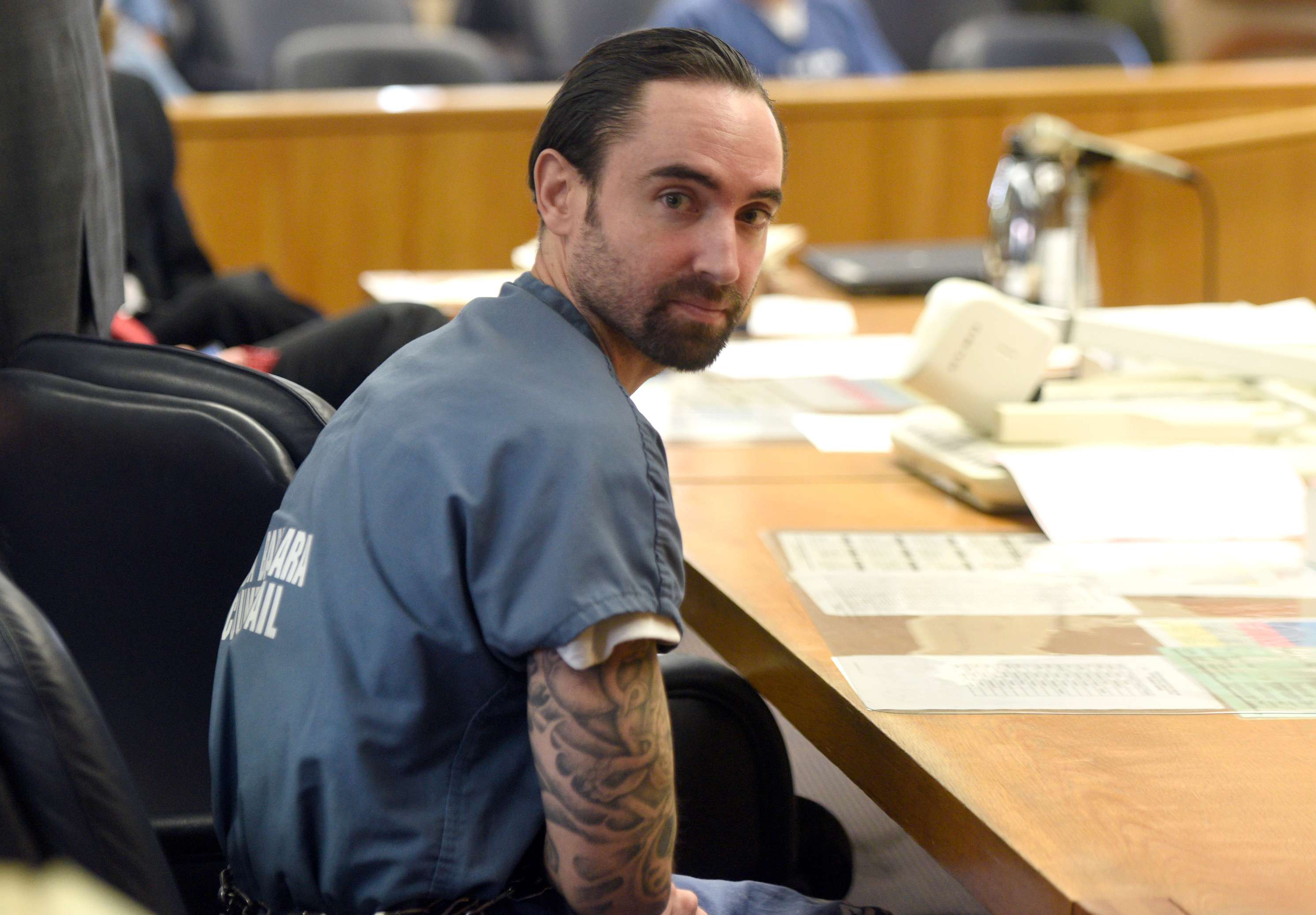County Settles Excessive Force Lawsuit for $800,000
Jeremy Bordegaray Was Shot After Breaking into Home, Stealing Cop Car

Four years after a 29-year-old man was nearly shot to death by Sheriff’s deputies, Santa Barbara County paid him nearly $800,000 to settle a civil lawsuit alleging excessive force. He has also been convicted in criminal court and is still in prison.
One October night in 2013, Jeremy Bordegaray broke into a small beach house in a gated Carpinteria community. A neighbor called the police about a possible intruder. Sergeant Dan Calderon and two deputies arrived and arrested Bordegaray for loitering. They found his backpack contained a firearm. He was handcuffed and loaded into the back of a police car.
Bordegaray sat alone in the back of the locked vehicle, which was running, court records state. The deputies, meanwhile, searched the empty house. Bordegaray managed to slip his handcuffs under his legs, break through the plexiglass partition, and land in the driver’s seat.
Still in cuffs, he somehow managed to put the vehicle in reverse and back out of the driveway. Exactly what happened next is unclear. According to the civil lawsuit, Bordegaray became stuck between another Sheriff’s vehicle and a tow truck. Calderon fired three shots while Bordegaray struggled with the shift lever, the lawsuit states. One bullet “ripped through [Bordegaray’s] abdomen,” according to his attorney, Mark Pachowicz, destroying 80 percent of his intestines and 40 centimeters of his colon.
The deputies pulled Bordegaray out of the car and let him bleed on the pavement for “an extended period of time” without administering CPR, the suit claims. When the deputies did eventually call for help, they reported the incident as a “traffic accident,” the lawsuit alleges; they did not say anyone had been shot.
Pachowicz claimed in court filings the deputies “colluded and conspired” to write false police reports. He refuted that the vehicle “came at [Calderon]” and that he had to move out of the way of the car.
Kelly Scott, the chief deputy district attorney, disputed many accusations in the civil filing. When asked, she said the shooting by Calderon was determined legally justified because the deputies feared for their lives and others in the vicinity. She declined to release her office’s report declaring the shooting justified. That is not standard protocol when the suspect survives, she said. Scott noted Bordegaray picked up a felony for intent to sell a controlled substance while he was out of custody before the case went to trial. Bordegaray’s criminal record includes multiple felony drug and gun cases in San Luis Obispo. He is originally from Cayucos.
In November 2014, Bordegaray was sentenced to five years in prison. He pleaded no contest to charges of possessing methamphetamine, carrying a gun, and stealing a car.
Efforts to reach several people with knowledge of the case were unsuccessful. Attorney Pachowicz did not return calls by deadline. Sergeant Calderon declined to comment. Defense attorney Bill Makler, who handled Bordegaray’s criminal case, declined to comment.
The deputies had not been involved in any other officer-involved shootings, according to Sheriff’s spokesperson Kelly Hoover. Per standard protocol, they were placed on administrative leave after the incident, she said. “There were no allegations of wrongdoings,” she said in an email.
A year after the incident, Bordegaray was still forced to use a colostomy bag. His current condition is unclear. The civil complaint alleges that when he was in County Jail, his medical needs were neglected for so long that his wounds “became green, pussy, and emitted noxious odors.” The smells were so pungent that a newly hired custody staffer fainted when trying to change his bandages, the civil filing claims.
It is relatively rare for a suspect to be prosecuted in criminal court and receive a settlement from the county government and its Sheriff’s Office. It is possible, though, because the standard of proof is different — criminal cases require proof beyond reasonable doubt while civil cases rest on ponderance of evidence. County Counsel Mike Ghizzoni explained, “While a criminal conviction will preclude many forms of civil liability, it does not preclude liability for excessive force.”



